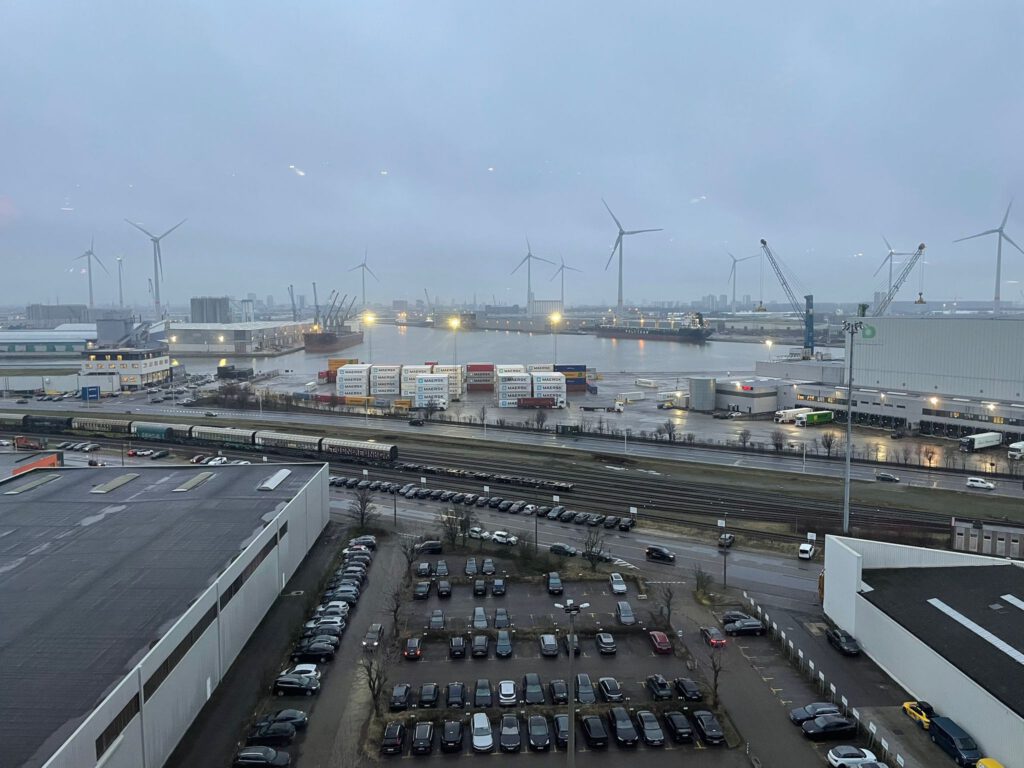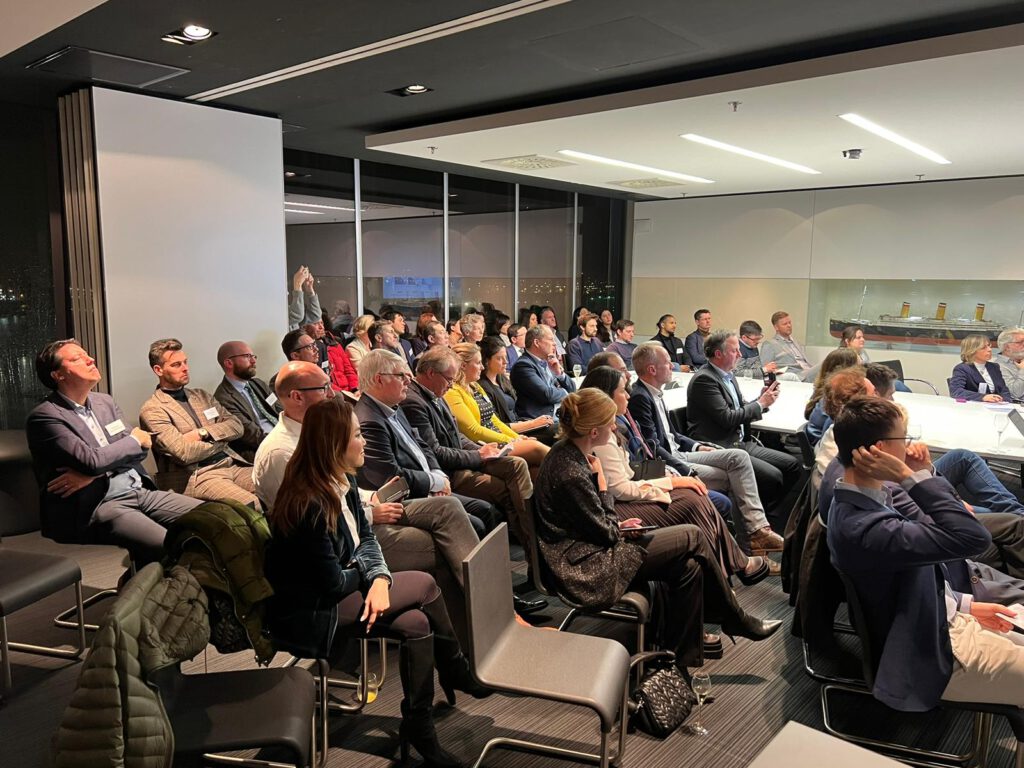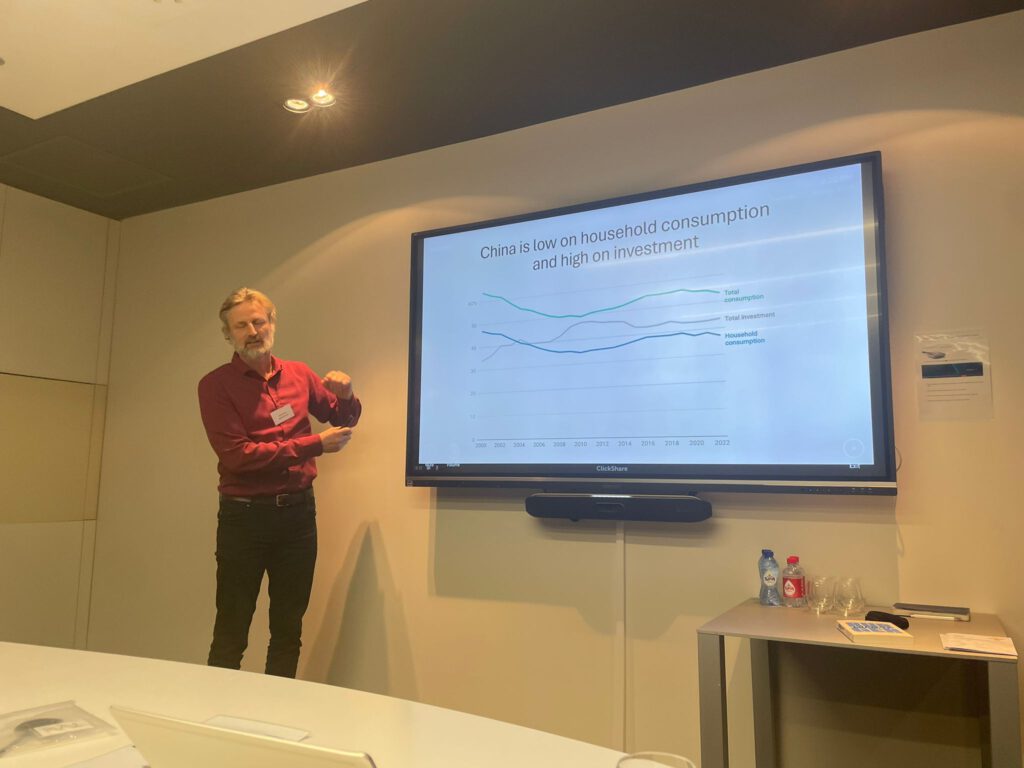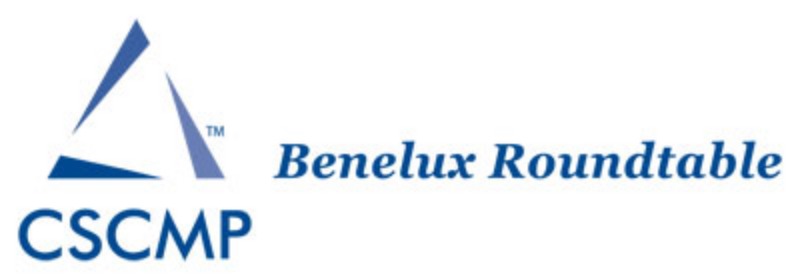Trade never stops, it merely changes in direction and volume under influence of factors such as demographics, pandemics, wars or politics. It was therefore fitting that the we were gathered on the 10th floor of the Ahlers’ headquarters with a view on the vibrant non-stop activity of the Port of Antwerp. It was as if the port signalled: operations will continue while you discuss trade between China and Europe.

In recent years the relationship between China and the European has been on the agenda in many boardrooms. China is an integral part of global supply chains and for decades has been the factory of the world. However, against the backdrop of rising geopolitical tensions, an increasing number of European nations are now voicing concerns about how much their supply chains depend on the world’s second largest economy.
This presented an opportunity for Ghent University, FCCC and CSCMP Benelux to jointly organize an event to discuss finding a new global balance between Europe and China, and the supply chain and logistic challenges that come with it. All ingredients for a successful event were present: a global perspective, end-to-end supply chain focus and an open view to explore the topic from different angles.

As a CSCMP Benelux board member, but foremost as a supply chain enthusiast, it was a pleasure to participate in this particularly well balanced evening. After an introduction of the FCCC and CSCMP Benelux by Gwenn Sonck and Chrisoula Papadopoulou respectively, there were four speakers with unique angles that provided deep dive in this interesting topic. It’s hard to convey the dynamic atmosphere of the evening, but to give a short summary, I’ve tried to structure some of the content around the rules, the operations, the market and the future, or from micro to macro if you will.
Understanding the rules: Matteo Bianchi from PwC shared his insight on how to approach the trade intricacies and impact of sanctions and restrictions. For entrepreneurs and organizations it is important to get educated and be up-to-date, as naivety is not an excuse. His examples of how in some cases embargo’s have been circumvented were of course purely illustrative, and the potential consequences of such behaviours a cautionary tale.

Understanding operational challenges: Johan Elzes from Ahlers brought his unique international experience, including Russia and China. His aim was to approach the topic from a very practical perspective. He explained for example how the the middle corridor played a pivotal role in several customer cases. In addition he detailed the importance of building trust and understanding local culture. His example of the joint venture of Yum and Lavazza launching a coffee with Gorgonzola taste was an excellent way to underline how different perception of taste can be, and how important it is to be sensitive to these differences.
Understanding the market: Building on those differences, it was inspiring to get an in-depth view in the platorm of Alibaba. Jennifer Wang took the audience by the hand and dove into the platorm, showing all the latest developments of the application of artificial intelligence in e-commerce. The huge role of influencers, and the key insights provided a view into what for some of the audience felt like the future. Part of the debate aferwards was whether this future was utopian or dystopian, which was to some degree dependent on the age and background of the participants.
Understanding the future: Demographics predict the future in a far more accurate way then you might think, and professor Koen Schoors pointed this out perfectly. He gave an insight into the enormous challenges that China is facing in terms of their demographic profile, the housing and building crisis and political development, but also gave some hints on how to emerge from these crises.
It was a full packed evening with over 2 hours of information-dense interaction. I found it refreshing that the evening allowed for immersion, instead of the TikTok bite sized information sharing we see more and more. It exemplifies the reason why I have been a proud member of the CSCMP for almost 20 years. Developing, connecting, educating and room for new experiences and not to mention some fun.
As a final reflection, I thought there might be an elephant in the room regarding the geopolitical tensions and human rights issues, but that was not the case. I was happy that these sensitive topics were addressed several times during the evening, without anyone suggesting they could be solved in the near future. It is my personal conviction that dialogue and shared experiences will always contribute in a positive way. And although trade never stops but merely changes, I hope that joint events like these bring a positive change.
An impression of the event on the 25th of January 2024 by Jeroen Bolt.
Jeroen Bolt is a highly motivated and passionate supply chain professional and CSCMP Benelux board member, with a track record in various multinational environments. Jeroen: “The supply chain profession is wonderful; it is connected both internally as well as externally to a wide range of partners and departments, and is an area where companies can save money while improving customer service.”
